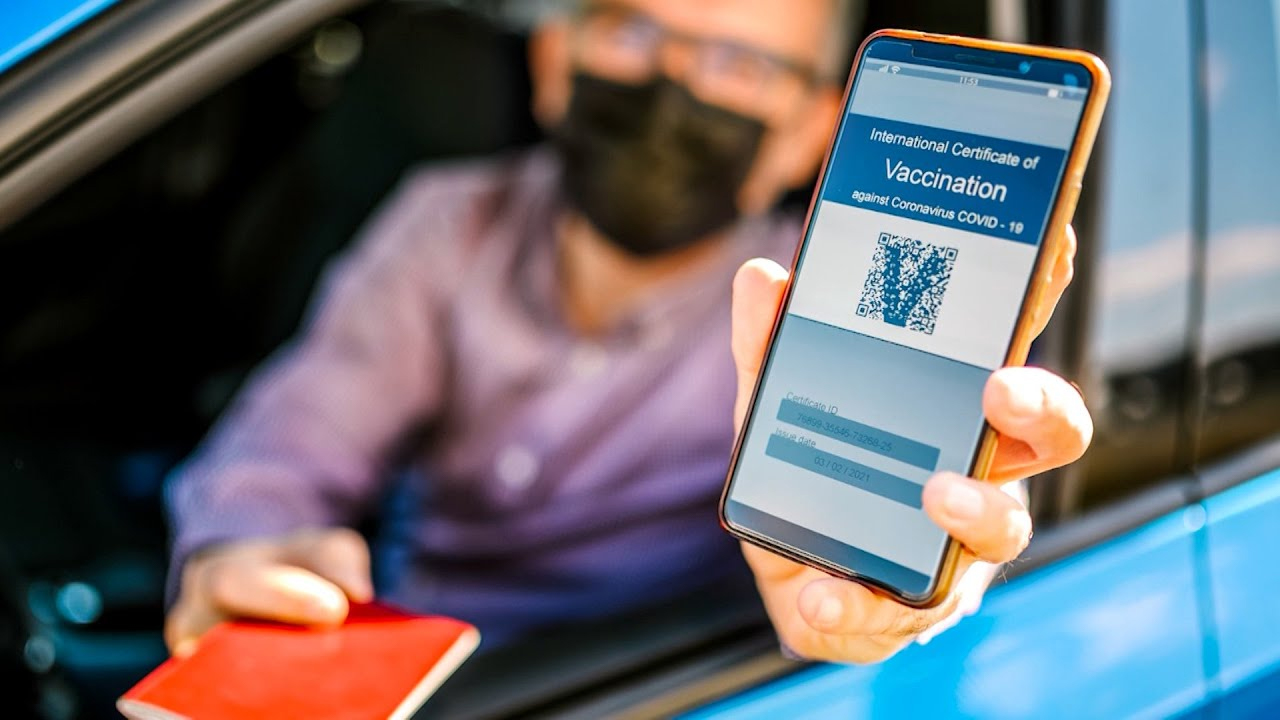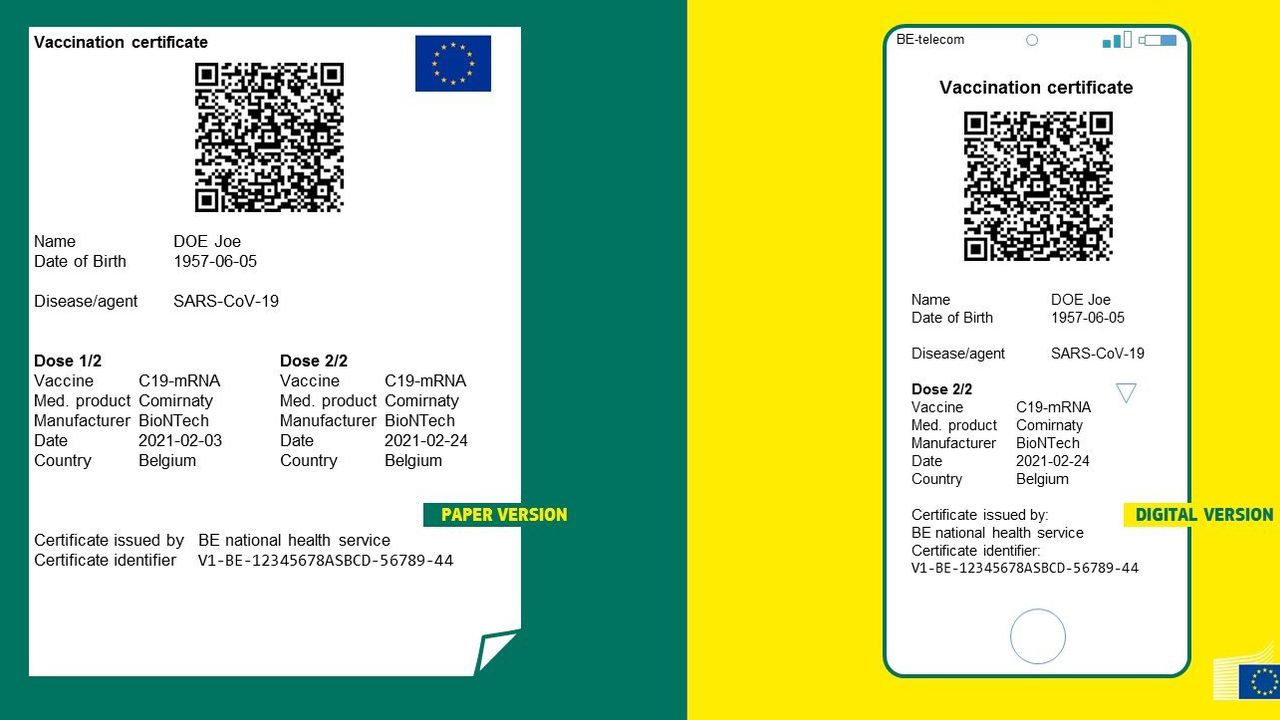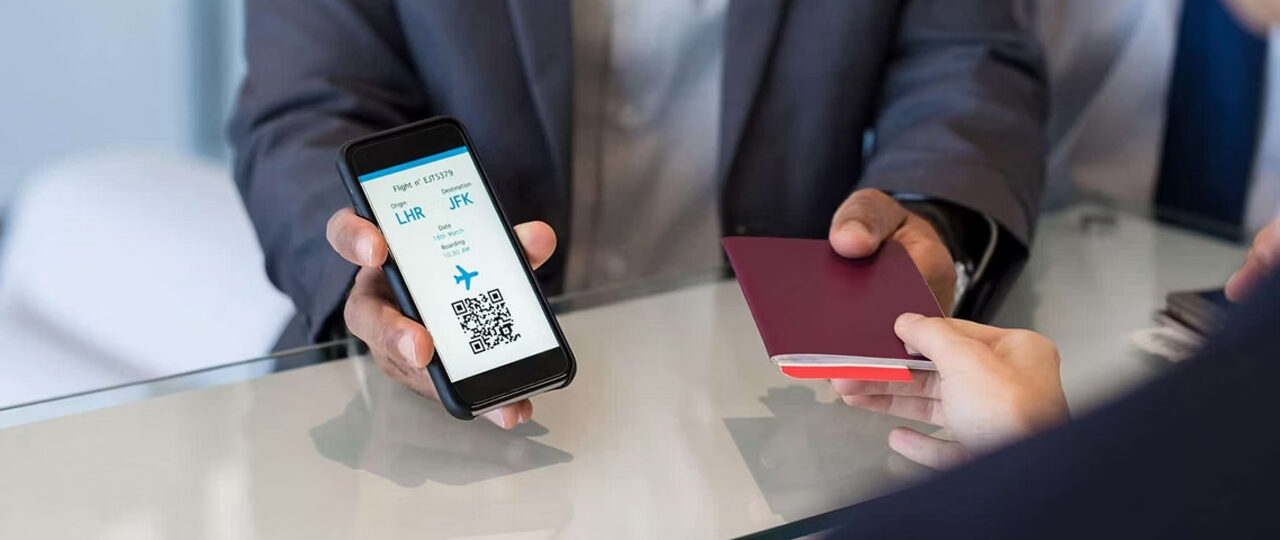What is a Digital Passport?
A digital passport is an identity document designed to replace traditional physical passports and can store personal information digitally. Digital passports were developed to make data more secure, portable, and accessible. Here is some basic information about digital passports:
Electronic Data Storage: Digital passports digitally store the holder’s personal information and biometric data. This data is placed inside the passport using a chip or similar technology.
Biometric Data: Biometric data frequently used in digital passports may include fingerprint, facial recognition and retina scan. This data is used to authenticate the owner.
Data Security: Digital passports use more secure data storage methods than traditional passports. In this way, it better protects the owner’s identity information and personal data.
Ease of Travel: Digital passports can be used faster and easier at border control. The owner’s identity can be quickly verified with passport readers and biometric recognition systems.
Online Services: Some countries offer online services to digital passport holders. These services may include renewing a passport online or quickly canceling a lost passport.
International Standards: Digital passports comply with the international standards of the International Civil Aviation Organization (ICAO). In this way, they become an identity document that is valid worldwide.
Digital passports are used by governments to better protect their citizens’ identities and make border control more effective. However, issues such as the transition to this technology and security issues should also be taken into account. To get more information about digital passports, contact your country’s passport authorities or the Ministry of Foreign Affairs.

What is Digital Identity?
One of the most frequently asked questions is digital identity. Now let’s clarify this a bit.
Digital identity is a digital identification system that allows individuals to be recognized and authenticated on online platforms or digital environments. It is the digital equivalent of physical documents such as traditional identity documents (for example, ID cards, passports, or driver’s licenses). Digital identities play an important role in some use cases, such as accessing online services, transacting and protecting personal data.
Digital identities typically include the following components:
Personal Information: Basic personal information such as name, surname, date of birth, gender.
Authentication Information: Username, password, or stronger authentication methods (for example, biometric data such as fingerprint, facial recognition, or retina scan).
Digital Certificates: Security elements that verify a user’s digital identity, such as cryptographic certificates or digital signatures.
Data Sharing Control: Authorization mechanisms that allow users to control what information they share, when and for what purpose.
Some uses of digital IDs include:
Online Authentication: Allows users to verify their identity when logging into online services. For example, authentication is used when logging into a website or application.
E-Signature (Electronic Signature) and Digital Transactions: The ability to sign electronic documents and perform digital transactions. This ensures that digital documents are legally valid.
Health Records and Identities: Used in the healthcare industry to manage patients’ digital identities and health records. This can make it easier for patients to securely share their health data and access healthcare.
Social Media and Online Platforms: Social media accounts and online platforms enable users to interact online by establishing their digital identities.
Travel and Identity Verification: Digital IDs can be used to verify travelers’ identities at airports or border control.
Digital identities bring with them the need to protect the privacy and security of personal data. Therefore, digital identity systems require strict security protocols and data protection measures. In addition, studies on digital identity management standards are being carried out around the world and technological developments in this field continue.

What is a Digital Travel Document?
It was a type of document used mostly during the Covid pandemic. Let’s look at some more details…
A digital travel certificate is an electronic document that verifies the health status and travel history of people traveling during pandemic periods or other special conditions. This document is used to control the spread of infectious diseases such as COVID-19 and protect travelers’ health.
A digital travel document can typically contain the following information:
Covid-19 Vaccination Status: Contains vaccination information such as when the person received their COVID-19 vaccine, which vaccine they received, and whether they have any replacement doses.
COVID-19 Test Results: Contains test information such as the person’s latest COVID-19 test results, the date of the test, and whether the result was positive or negative.
Covid19 Recovery Status: Contains recovery information such as whether the person has had COVID-19, whether he or she has recovered, and when this recovery occurred.
Travel History: This may include information about which countries the person has visited or traveled to recently.
A digital travel document is used to speed up border controls for international travelers and monitor travelers’ health status. This document usually includes a QR code or similar digital signature so authorities can easily access this information.
Digital travel document applications may differ from country to country, and efforts are ongoing to establish standards that will be valid internationally. Before traveling, it is important to check what documents are needed and what conditions apply, as these rules can change quickly and differ from country to country.
Related News: Finland Prepares to Test the World’s First Digital Travel Document
From 28 August 2023, the Finnish Border Guard will allow passengers on selected Finnair flights to and from the UK to pass through border control at Helsinki Airport using their new Digital Travel Credential (DTC).
The pilot project forms part of a world-first reported pilot program launched in collaboration with Finnair, Finnish Police and Finavia.
The DTC is the digital version of the physical passport and according to a statement from the Finnish Border Guard, it is ‘equally reliable and will allow smooth and fast border crossings without compromising security.’
Gazali Tourism is where you can find the most up-to-date travel content today. With the understanding of being a reliable and efficient team with our experienced technical staff, we provide services by national and world standards without compromising the principles of timeliness along with customer satisfaction and quality.
As Gazali Tourism, we aim to be the first stop for people who like to vacation and travel with the package tours we have prepared for you, VIP car rental and transfer to all parts of Turkey and hotel reservations. For more information, you can contact us and enjoy your holiday in Turkey.



